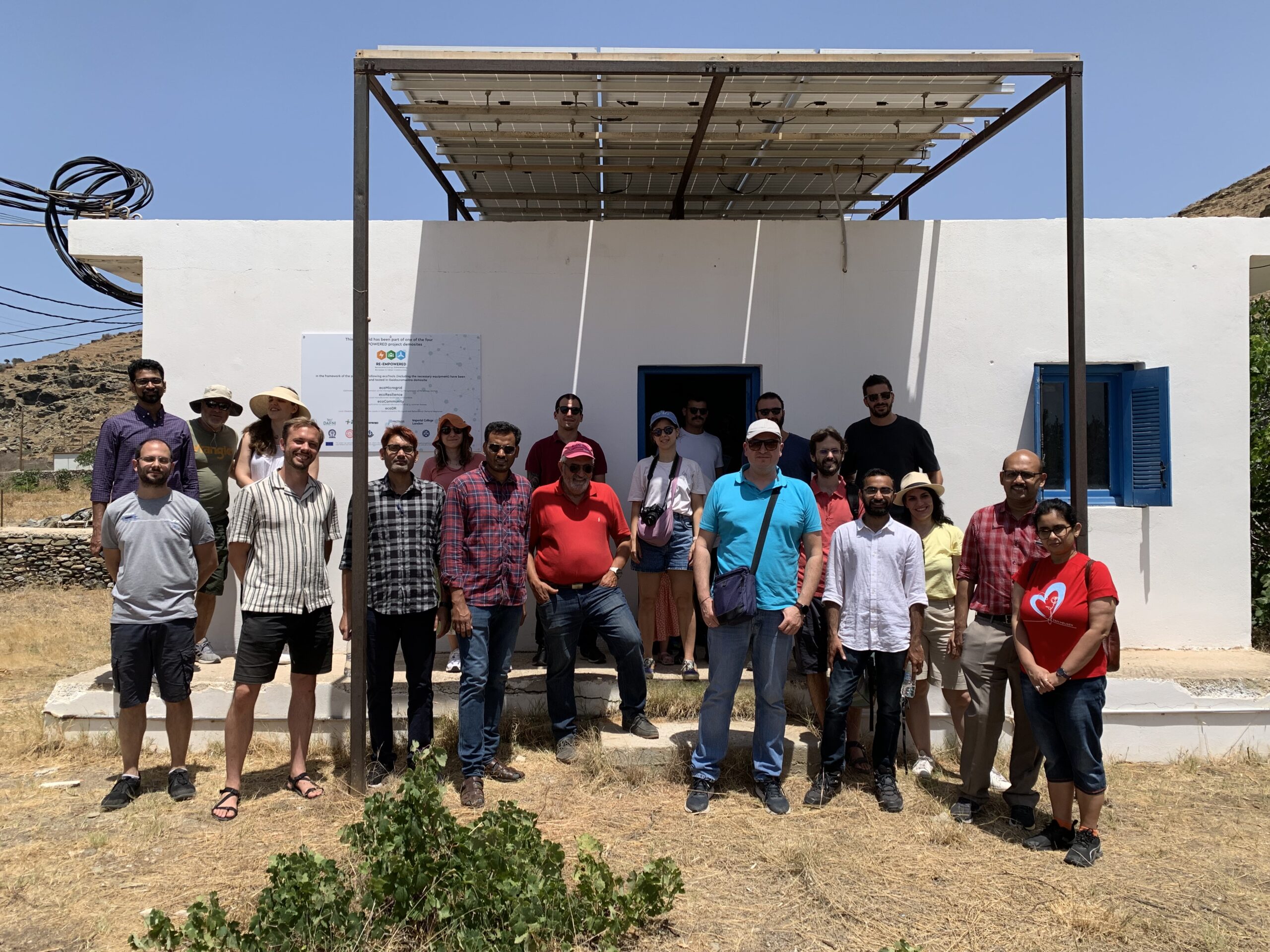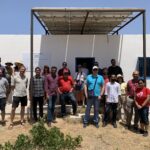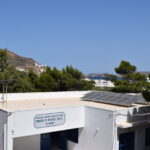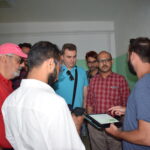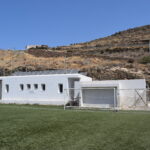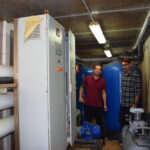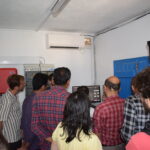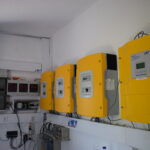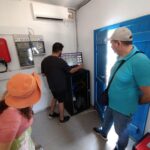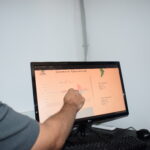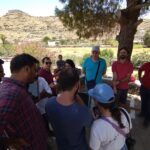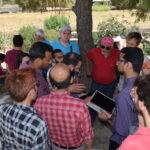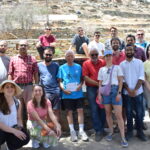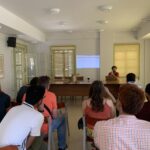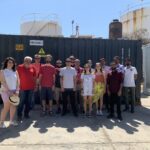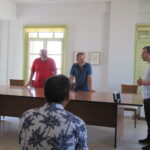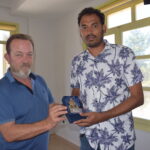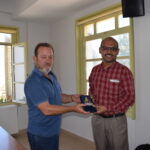On Thursday 27th June, one day after the consortium plenary meeting in Athens, the partners travelled to Kythnos island, one of the 4 project’s demosites. Merichas high school, located close to the port of Kythnos, was the first stop of the visit. The school, which is equipped with a heat pump, solar panels and batteries will be the installation site for the ecoMonitor tool that will collect air quality data. Then the partners, visited the Merichas desalination unit, also powered by 10kW of rooftop solar panels and a battery storage unit.
Next stop was Gaidouromantra which is the main RE-EMPOWERED demosite, where an off-grid microgrid has been installed, to supply electricity to the 14 vacation houses of the area. The microgrid consists of a 3,6 kW small wind turbine, 18kW of solar PVs, 90 kWh of battery storage and a back-up diesel generator.
5 ecoTools are deployed in Gaidouromantra:
- ecoMicrogrid : energy management system for microgrids
- ecoPlatform: the cloud-based interoperable platform which gathers data from all the microgrid systems
- ecoResilience: the wind turbine manufactured by a team of students from the National Technical University of Athens
- ecoCommunity: citizen engagement digital platform assisting in the load management between the community members
- ecoDR : smart meter – load controller installed at the AC of the system house
The demo site leader, ICCS-NTUA demonstrated the operation of ecoPlatform tool. Additionally, the partners met one of the residents of the microgrid system, discussed with him about the challenges of the operation of the off-grid microgrid and were offered a tour in the installed residential system (battery, water pump, solar panels).
In the evening of the same day, the partners visited Dryopida settlement, where they had the opportunity to witness some of the interventions carried out in the framework of Kythnos Smart Island Project (EV chargers, street lighting upgrade, public space regeneration) and enjoy delicious dinner in a local tavern.
In the following day, the partners visited the thermal station of the island which currently supplies 90% of the island’s electricity (other 10% is RES). The operator of the power station, owned by Power Public Corporation (PPC), explained how the electricity is generated and distributed from the power station to the whole island and what are the roles of PPC and DSO in the supply of electricity.
The site visits were concluded at the City Hall, where ICCS-NTUA presented a demonstration of ecoEMS and ecoPlanning tools. EcoEMS is an Energy Management System aiming at optimizing the overall performance of isolated and weakly interconnected energy systems by increasing the share of RES while ecoPlanning serves as a tool for supporting the decision-making process for the deployment of new electricity generation units (conventional and renewable) in the electrical systems of Non- Interconnected Islands (NIIs) in a mid-term horizon.
After the presentation, a short meeting with Mr. Garderis, the mayor of Kythnos, took place. During the meeting the mayor presented the local authority’s vision and actions towards the sustainable development of the island, while Professor Hatziargyriou highlighted the importance of the island’s history on energy innovation as a source of inspiration for the development of smart islands. Mr Garderis expressed the island’s hospitality by offering a small token of appreciation to the Indian partners thanking them for their collaboration in the project.
The trip ended with a tour in Chora, the capital of Kythnos and a visit to a nearby beach to enjoy the sea of the island!

